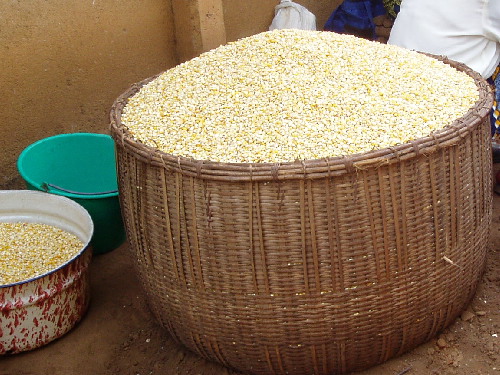26 May 2007
In March 2007 (just as he was recovering from multiple intestinal surgery) Fidel Castro started publishing a series of articles in Granma Newspaper under the caption “Reflections of President Fidel Castro”. The most recurrent issue in most of those articles has been his vehement opposition to the idea of using food to produce fuel for use in automobiles and other machines. In what he referred to as “the internationalization of genocide”, Castro argues that more than 3 billion vulnerable people in the developing countries will suffer from some sort of food crisis as ‘biofuel’ industries compete for grain with poor hungry people.
The Financial Times published an article on May 23rd in which it predicted that retail food prices were heading for their biggest annual increase in thirty years. “Prices have soared as the expanding biofuels industry, climate change and the growing prosperity of
nations such as India and China push up costs of farm commodities including wheat, corn, milk and oils. Food companies have started passing on these increases to consumers, but the prospect of sustained commodity price rises means the industry’s profits could be hit as it is forced to absorb the higher costs itself.” Wrote the Financial Times.
Fidel Castro has demonstrated in a convincing way that the major energy consuming nations do not necessarily need to take food from poor people’s mouths to convert to energy and maintain their standards of living. Simple practical adjustments in the way things are done can reduce energy demands without affecting standards of living. For example he writes that; “But it is also remarkable to see the news that the United States Congress decided to replace 23 thousand incandescent light bulbs with fluorescent bulbs throughout its offices. It is said that American families, on their own volition, have decided to replace 37 million incandescent light bulbs with fluorescent. In just a few months, the 37 million replaced light bulbs will save the equivalent cost of gasoline for 260,000 automobiles. Calculate the savings when billions of incandescent light bulbs are replaced.”

A basket of Corn. Biofuels will increase the price of this Africa's staple food
(Photo: Njei M.T)
The world has reached a critical turning point. The relationship between humans and energy requirements is becoming very complicated and that relationship is now having an overbearing effect on the very survival of species on planet earth. The misuse of fossil fuels has brought about global warming and its attendant environmental changes. Millions of people are expected to perish in the years ahead as a direct consequence of global warming. People living in Africa that are already feeling the negative impact of the human-induced climate change watch with indignation as the US leadership stalls collective international efforts to reduce greenhouse gas emissions. It is obvious that the overall food yield on the continent will be adversely affected by climate changes in the coming years. The prospects that some of the reduced grain yield will go to produce biofuels are scary. Nobody on the African continent believes that the current US administration will have a second look at the biofuel project no matter the outcry. The Bush administration has demonstrated in its handling of the Kyoto Protocol that nobody should count on it. The impression I have of the way the current US leadership handles such issues is that they are somewhat ignorant, possibly greedy and arrogant. They stubbornly pursue their goals even if they are to land themselves or all of us into a fiasco like they have done in Iraq.
It is quite disquieting to note that other world opinion leaders are not opening up a critical debate on this new foray into biofuels. At least I expect African leaders (whose people are likely going to go to bed hungry in the event food price hikes) to speak out. Castro has clearly implied in all his writings that it is the poor people of our world that are going to pay with their lives for biofuels. These are serious conclusions drawn by a leader known for his revolutionary prowess and foresight. Sometimes the worries of daily living becloud our ability to analyze what is coming in the future. Fidel Castro has already sounded an alarm. The other opinion leaders are expected to take the relay. It will be a failure on their part to let the 80-year-old ailing Castro solely champion a cause that clearly has implications for all of us.
Njei Moses Timah
|